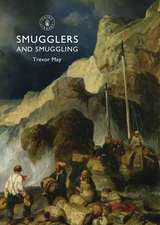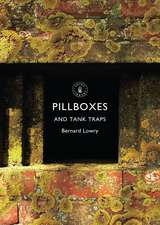Hungarian Women’s Activism in the Wake of the First World War: From Rights to Revanche
Autor Professor Judith Szaporen Limba Engleză Paperback – 21 aug 2019
| Toate formatele și edițiile | Preț | Express |
|---|---|---|
| Paperback (1) | 97.83 lei 3-5 săpt. | +18.99 lei 4-10 zile |
| Bloomsbury Publishing – 21 aug 2019 | 97.83 lei 3-5 săpt. | +18.99 lei 4-10 zile |
| Hardback (1) | 714.68 lei 6-8 săpt. | |
| Bloomsbury Publishing – 13 dec 2017 | 714.68 lei 6-8 săpt. |
Preț: 97.83 lei
Nou
Puncte Express: 147
Preț estimativ în valută:
18.72€ • 19.34$ • 15.58£
18.72€ • 19.34$ • 15.58£
Carte disponibilă
Livrare economică 04-18 martie
Livrare express 15-21 februarie pentru 28.98 lei
Preluare comenzi: 021 569.72.76
Specificații
ISBN-13: 9781350118928
ISBN-10: 1350118923
Pagini: 224
Ilustrații: 12 b/w illustrations
Dimensiuni: 156 x 234 x 16 mm
Greutate: 0.31 kg
Editura: Bloomsbury Publishing
Colecția Bloomsbury Academic
Locul publicării:London, United Kingdom
ISBN-10: 1350118923
Pagini: 224
Ilustrații: 12 b/w illustrations
Dimensiuni: 156 x 234 x 16 mm
Greutate: 0.31 kg
Editura: Bloomsbury Publishing
Colecția Bloomsbury Academic
Locul publicării:London, United Kingdom
Caracteristici
Explores the lasting legacy of the anti-liberal, extreme nationalist notions of gender and family encountered in this period
Notă biografică
Judith Szapor is Assistant Professor of History at McGill University, Canada. She is the author of The Hungarian Pocahontas; The Life and Times of Laura Polanyi Stricker, 1882-1959 (2005) and co-editor, along with Andrea Peto, Maura Hametz and Marina Calloni, of Jewish Intellectual Women in Central Europe, 1860-2000 (2012).
Cuprins
List of IllustrationsAcknowledgmentsList of AbbreviationsTimelineIntroduction: From Rights to Revanche1. The Promise of Progress: Women's Rights and Women's Movements in Hungary, 1904-182. Between the Private and the Public: The Hungarian Women's Debating Club3. Did Hungarian Women have a Revolution?4. To Regenerate the Hungarian Family and the Nation5. The Political is Personal: The Friendships and Fallings-Out of Emma Ritoók6. A Perfect Storm of CitizenshipConclusion: The Long Shadow of Cecile TormayBibliography Index
Recenzii
Szapor's book is a remarkably important contribution that focuses on women's history from the "golden age" of liberal organizations to the madness of antisemitism. Certain elements of the book's concept, as well as some of the evidence cited to support it, remain open to debate, yet the concept itself is outstandingly promising. The model also appears to be suitable for implementation in researching other forms of political transition.
Szapor's path-breaking book on Hungarian women's activism between world war, revolutions and counter-revolution is bursting full of new discoveries, complex personalities, compelling ideological conundrums, and the intrigue of rapid political realignments. Its interest extends well beyond the under-developed field of Hungarian women's history, offering provocative interventions into European gender history, the starkly uneven comparative history of suffrage and its aftermath, and the reclamation without celebration of women's nationalist and anti-liberal activism.
This well-researched and engaging study addresses a heretofore under-analyzed topic, Hungarian women's activism in an era of war, revolution, and reaction. It is an important addition to gender/women's history in twentieth-century Eastern Europe.
Szapor's path-breaking book on Hungarian women's activism between world war, revolutions and counter-revolution is bursting full of new discoveries, complex personalities, compelling ideological conundrums, and the intrigue of rapid political realignments. Its interest extends well beyond the under-developed field of Hungarian women's history, offering provocative interventions into European gender history, the starkly uneven comparative history of suffrage and its aftermath, and the reclamation without celebration of women's nationalist and anti-liberal activism.
This well-researched and engaging study addresses a heretofore under-analyzed topic, Hungarian women's activism in an era of war, revolution, and reaction. It is an important addition to gender/women's history in twentieth-century Eastern Europe.











